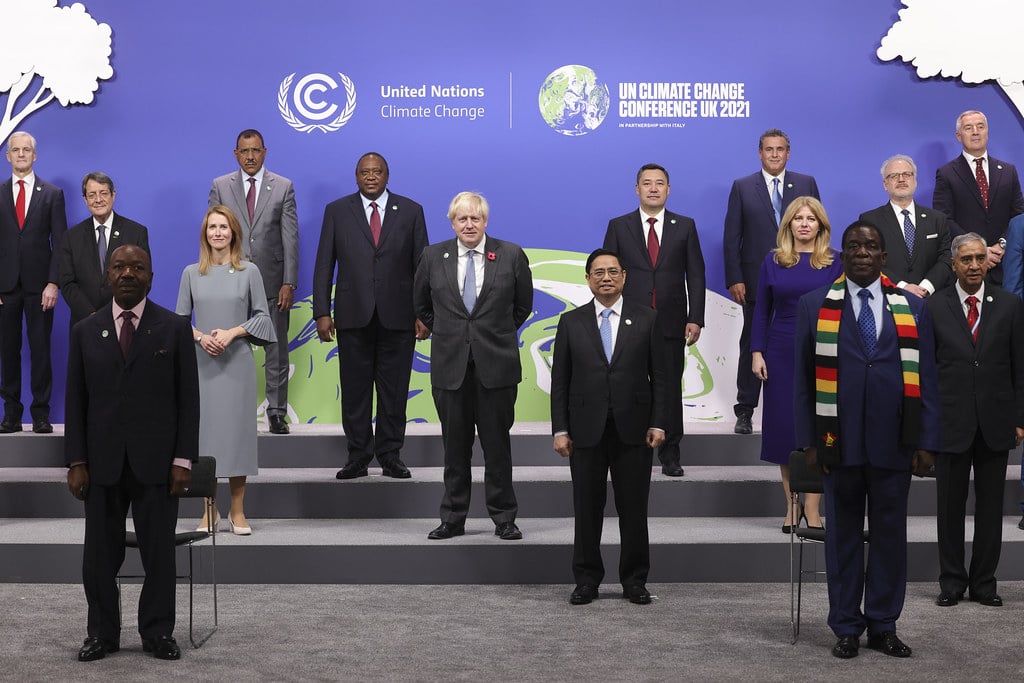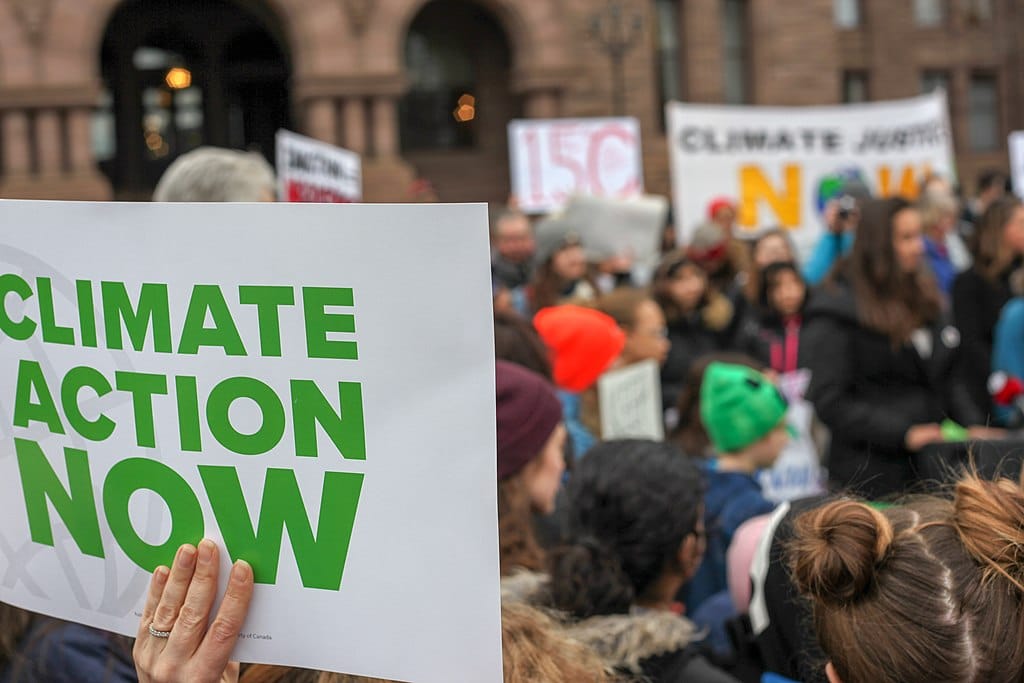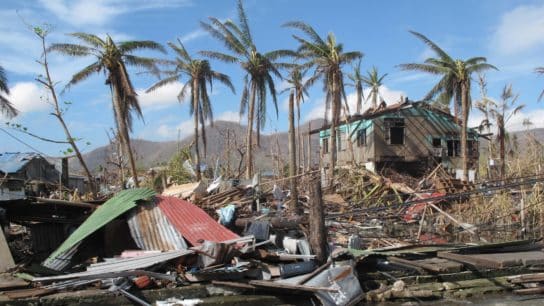2021 was undoubtedly a landmark year for the environment. From unprecedented climate and weather extremes to swathes of pledges involving everything from the automotive sector to private finance, it all culminated in a crucial set of talks in Glasgow at COP26. It is still too early to know whether 2021 was a turning point, but it is undeniable that the needle moved forward this year. For better or worse, taking action on climate change is now firmly at the centre of every industry and every part of our economy, and it is worth looking back at what 2021 represents – and what will come next.
—
Action on climate change was somewhat dismissed in 2020, something that might have easily been repeated this year. As the world continues to grapple with the throes of a global pandemic that has impacted every segment of our society, the environmental crisis could have been swept under the rug.
Fortunately, this didn’t happen. COP26, the UN climate summit which had already been rescheduled from its 2020 date to take place in person last November, went ahead as planned. And despite the overbearing concern over short-term risk mitigation in the face of a global health crisis, climate still shifted to become a leading concern for governments and interested parties worldwide.
This is probably the biggest trend coming out of 2021. Decarbonisation has suddenly become the buzzword of choice for every government and every component of the global economy. This has redirected huge sums of money to the shared goal of reducing economy-wide emissions, albeit in a somewhat chaotic and disorganised fashion.
At COP26, former director of the Bank of England Mark Carney announced that he was organising a coalition that would see $130 trillion in assets around the world decarbonised. BlackRock – the largest asset manager in the world – also announced that it had raised $673 million to finance projects tackling climate change in emerging markets worldwide. The momentum is in decarbonisation’s favour, as it becomes increasingly unappealing for businesses to delay ambitious action to reduce their emissions.
17 of the world’s biggest automotive companies have announced clear target dates for carbon neutrality or entirely phasing out their production of internal combustion engine cars, and that doesn’t even include the numerous start-ups that have been bringing groundbreaking EVs to market since Day 1. As of December 2021, 217 companies worldwide signed the Amazon-backed Climate Pledge, a mutual agreement to reach company-wide carbon neutrality by 2040. Signatories include corporate behemoth Procter & Gamble and tech giants such as HP and Salesforce.
But while all these commitments are promising and needed, they were made under the spectre of an impatient planet that has already begun to transform. If 2021 was the year of mobilised climate interest, then it was also the year that unheard climate extremes truly made us all take notice.
Climate disasters have finally made landfall on the world of the rich, as northern Europe, the US, Canada and China all grappled with devastating extreme weather events. But in poorer countries who have the fewest resources to spend, climate-related impacts continued to hit harder and more frequently, as happened in Guatemala, Madagascar, Angola and many more. Nowhere in the world can events of this magnitude still be brushed away as an anomalous year. The pandemic itself may well have been a result of human impacts on the environment, and we are already beginning to plan how to lessen the effects of the next, inevitable one.
2021 may have been the year where we began to understand that this is our new normal, and we will have to learn how to adjust to it because climate change is already happening. Food security is at risk, seasons are becoming erratic and people are being left behind. As always, it is the world’s developing nations that are suffering the most. We may have finally reached the point where, whether you are rich or poor, a banker or a farmer, a climate scientist or a labourer, it is impossible to be blind to the awesome and terrifying convulsions of a planet and its weather systems that are spiralling out of control.

You might also like: The COP Climate Conference Is Only A Part Of The Process, The Real Fight Goes On
Which is why the biggest challenges still remain ahead of us. We have the technology we need, and now the interest in using it is catching up, but we still need to implement it. The problem is that we now have to do so in the midst of global climate chaos that threatens to flood our homes one week and set them on fire the next.
One of the biggest looming challenges, for instance, is updating our electrical grids to handle the stresses that will inevitably accompany the energy transition to renewables. The actual transition is not too far off anymore, especially given the nosedive in costs of modern renewables and the impending chaos of oil prices that leave investors sleepless at nights. But a reliance on renewable energy means a reliance on battery storage capabilities and a largely decentralised electrical grid, which many countries currently lack. This is made even more complicated by the threat of natural disasters accelerated by climate change, which can wreck infrastructure and cause widespread disruption. Our energy systems themselves are not necessarily unreliable, but the warmer world we are entering is certainly unpredictable.
2021 may best be described as a transition year. It was a year in which everyone realised that big changes are about to happen, and we are past the point of no return for some irreversible shifts to our planet. But it was also a year in which people, governments and businesses finally decided that it was time to get serious.
The measures and new climate targets announced this year, especially those pledges made at COP26, would take us to 1.8C of warming this century under the best case scenario. This is, of course, highly ambitious and well above the 1.5C target set out in the Paris Agreement which would condemn many of the world’s most vulnerable countries to uninhabitability. But it is a far better trajectory than the 2.7C of warming we had before the COP26, which is itself much better than the 4C we were on track for a decade ago.
Taking action on climate change is a strange issue. It is a problem that takes time to fix, and doing so requires years’ worth of incremental progress that gradually brings us to a slightly better future. National governments and their policies may get all the attention, but incredible and inspiring progress is also being made on the ground from less visible local and city governments, as well as informal communities who realise that their intimate bonds with each other are under an existential threat from the effects of a changing climate.
It may be a frustrating process, but looking forward to 2022 and beyond, there is ample reason to hope. 2021 may be remembered as a transition year for how we think about this crisis and our place in the natural world. Perhaps 2021 was when we started to think about the future not in terms of five or ten years, but in 100 or 1,000, as we become aware that our actions today have consequences that will reverberate long past any individual lifetime. It may be the year we began to think about humanity’s ability to share our planet, care for its wellbeing and recognise that our health and prosperity is contingent on our home’s ability to provide.
We have our goals and ways to take action on climate change. Continuing to pressure our governments, electing politicians who care about these issues, supporting the activists, thinkers and organisations who are leading movements for change and understanding how we as individuals can strive for a life that is more synergistic with the natural world. This is what we must do, and what we can do.
It serves no purpose to feel despair and dejection. There is always a reason to strive for a little bit more and a little bit better. Change and progress are always happening, and if we recognise the value of working collectively and compassionately to adapt in a changing world, there is no reason we cannot thrive in it.
Until next year.
Featured image by: Wikimedia Commons














